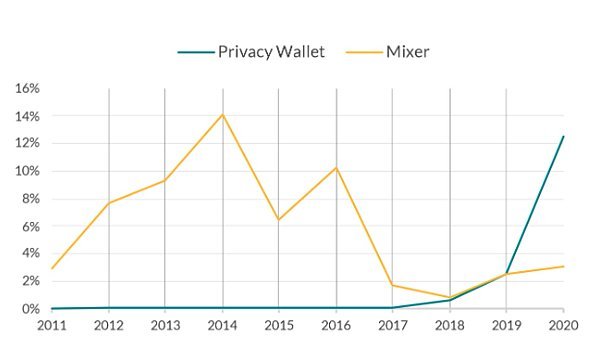Digital wallets focused on privacy are becoming more popular amid cybercriminals, a blockchain-focused analytic firm Elliptic has learned.
According to Tom Robinson, Elliptic's Co-founder and Chief Scientist, there is the growing use of privacy wallets in the crypto laundering process. He says that bad actors are increasingly turning to privacy wallets as bitcoin (EXANTE: Bitcoin) transactions are fully transparent on the blockchain network.
"This is a problem for criminals since it means that law enforcement agents can follow the money trail using blockchain analytics tools, and potentially identify and apprehend them," Robinson states.
In general, cybercriminals have been using this problem with cryptocurrency mixers, services that allow users to hide the blockchain trail. However, mixers have significant drawbacks, emphasizes Robinson.
"...you have to trust that it is not a law enforcement honeypot (they are usually operated anonymously), or that they will not simply disappear with the deposited bitcoins," he explained.
Meanwhile, privacy wallets can solve the problem of trust with integrated support for algorithms focused on hiding traces. At least 13% of all bitcoin-related crime were sent via privacy wallets in 2020, up from just 2% the year before
Earlier in July 2020, the US Internal Revenue Service reported it wants to track privacy coins, sidechains and layer-two solutions.
The US Internal Revenue Service is seeking information and tools to help it track transactions that use privacy coins, layer-two solutions such as the Lightning Network and sidechains such as plasma and omisego (OMG). The regulator also has a special interest in the privacy-centered cryptos monero (XMR), zcash (ZEC), dash (DASH), grin (GRIN), komodo (KMD), verge (XVG) and horizon (ZEN).
If you are looking for a crypto trading platform to trade your assets, visit Gozo.pro, a safe and reliable exchange.



